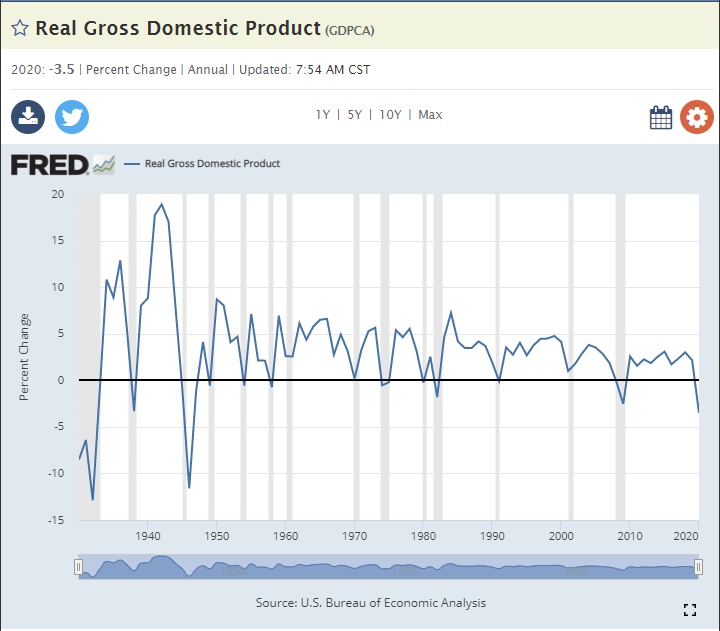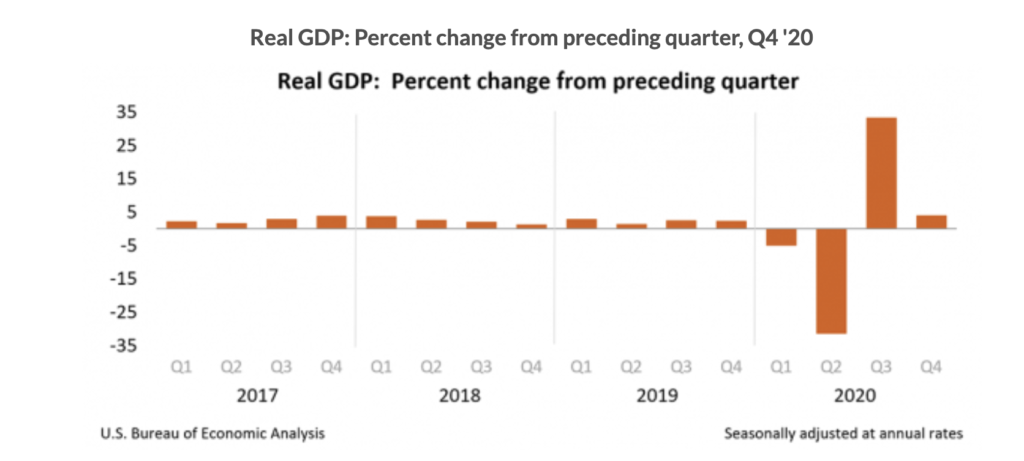GDP shrank 3.5% in 2020
Earlier today, the Bureau of Economic analysis produced their estimates for the final quarter of 2020. And according to the numbers, while the economy slightly grew in the fourth quarter, it did not grow enough to offset the decline associated with the coronavirus pandemic that happened at the beginning of the year. According to the BEA, in the fourth quarter GDP increased by an annual rate of 4%. This is in contrast to the third quarter where we saw GDP increase by 33.4%. Overall, the United States economy contracted by 3.5% in 2020, in real terms.

All the reduction in GDP came from the first half of the year. This was mainly due to restrictions that were placed on economic activity. Both the third and fourth quarters saw GDP growth mostly due to reopening efforts. However, growth slowed the fourth quarter as some states reimposed restrictions on their economies.
The increase in fourth quarter GDP reflected both the continued economic recovery from the sharp declines earlier in the year and the ongoing impact of the COVID-19 pandemic, including new restrictions and closures that took effect in some areas of the United States. The full economic effects of the COVID-19 pandemic cannot be quantified in the GDP estimate for the fourth quarter of 2020 because the impacts are generally embedded in source data and cannot be separately identified.

Source: BEA
Currently, the outlook is grim, especially for the first quarter. And this is again due to restrictions that have been reinstated in some states. But growth is expected to pick up for the rest of the year. How strong will probably depend on how fast economic activity will be allowed to resume.
This has serious implications
GDP is not just an obscure word on paper. Whether our level of production shrinks or expands has serious implications on our living standards, quality of life, and general wellbeing. A growing economy generally means increased income, which translates to improved standards of living. Additionally, it also specifically offers expanded opportunities for the poor to improve their economic outcomes.
To say it simply, when the economy grows, or the pie gets bigger, opportunities for employment and economic growth also expand. Likewise, a slowing or declining economy is associated with adverse economic outcomes, especially for the most economically disadvantaged.